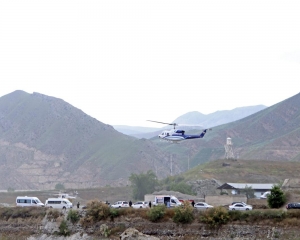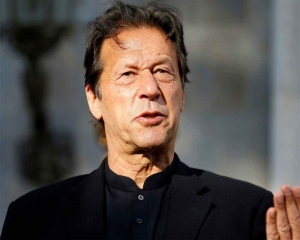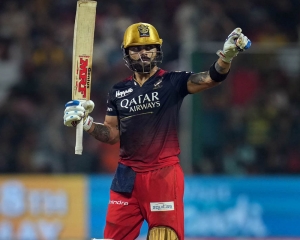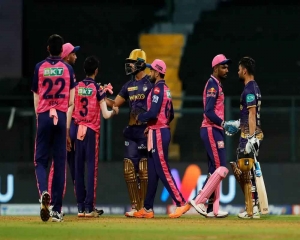Even today, when one talks of labour unions, workers' demands, idealistic character and practices in the industry, the mention of Pt. Bindeshwari Dubey features prominently. He fought rigorously for the oppressed workforce of the society.
His journey from the labour movement to becoming the Chief Minister of Bihar and Central Minister of Law & Justice and Labour in cabinet of Late. Rajiv Gandhi is an apt example of Pandit Dubey ji's strong will, sacrifice and honesty.
Influenced by Mahatma Gandhi and Pandit Nehru during his student days, he joined the freedom struggle and after this he dedicated his life to the service of the people and supported Mahatma Gandhi, Jawahar Lal Nehru, Indira Gandhi and Rajiv Gandhi.
Bindeshwari Dubey (14 January 1921 – 20 January 1993) was a freedom fighter, efficient administrator and sympathizer and messiah of the poor and workers who served as the Chief Minister of Bihar, Union Cabinet Minister (Law & Justice and Labour & Employment), National President of INTUC.
Bindeshwari Dubey, after being released from jail in 1944 during the freedom movement, worked in Hind Stiff Mines in Bermo. He started raising his voice against the exploitation of workers in the collieries before the management. First of all, he started the trade union from 'Sir Linson Parkinson & Co.', run by a British manager.
Thereafter, a labour leader of that time, Bindeshwari Singh, appointed him as the president of the branch of the Colliery Mazdoor Union, as Dubey Ji was elected by the public in the general meeting. After this, he continued to work for the interests of labourers and with time became the President of Bihar INTUC.
In the 80s, he was elected the National President of INTUC in Dhanbad. Apart from this, he was the President of many unions such as Indian National Mineworkers Federation, Rashtriya Colliery Mazdoor Sangh, Indian Electricity Workers Federation, Mines Workers Academy, HSCL Workers Union, PPCL Workers Union, Bokaro Steel Workers Union, Telco Workers Union, DVC Workers Union, HEC Workers Union, MECON Workers Union etc. which are affiliated to INTUC.
Dubey became the President of INTUC-affiliated 'Rashtriya Colliery Mazdoor Sangh in the 1970s and performed the duties of this post till his last breath (January 20, 1993).
On June 17, 1968, on the appeal of Kanti Mehta, General Secretary of the National Mine Labour Federation and Bindeshwari Dubey, General Secretary of the Colliery Labour Union, a historic strike was held in Dhanbad, to properly implement the recommendations of the Wage Board and to provide dearness allowance to the workers.
And about 1.5 lakh colliery workers of Hazaribagh district remained on strike in heavy rain. Due to non-payment by collieries like Karamchand Thapar, Chanchni, Bird, K•Bora, Turner Corridion, New Tetulia, Baijna, Madhuban, Amalabad, Putki, Kankani, Bagdigi, Lodna, Bhaunra, Bastakola, Raniganj of Bihar, Bengal, Orissa etc., strike notice was given as a result of which a settlement was reached with them. All the big kings and capitalists' companies had to bow down before his sharp organization.
Dubey, along with the then Prime Minister Indira Gandhi and the then Coal Minister Mohan Kumaramangalam, played an important role in the nationalization of India's collieries, giving voice to the coal workers. First of all, the coking coal collieries of Dhanbad were nationalized.
Dubey represented India in conferences of the International Labour Organization in many countries like America, Germany, UK, Japan, Belgium, Netherlands, France, Yugoslavia, Switzerland to understand the problems of workers more closely and solve them.
He played an important role in setting up all the units of DVC like Maithon, Tenughat-Lalpania, Koderma and various projects and acted as a link between the public and the government on various issues. He had made rules for 100 percent reservation for the displaced people and natives of the area in third and fourth class services in many industrial plants or projects, mainly Bokaro Steel Plant, DVC, Coal India and Tata Steel.
Legal proposals and amendments related to Lok Adalat, Aadhaar, law against extortion, pension to journalists, establishment of National Law Universities and many other important aspects were made by him as Union Law Minister and Union Labour Minister.
4 codes were implemented by the Central Government in 2019-20 in place of the existing 44 labour laws, which were implemented and protected by Pt. Bindeshwari Dubey, but these Codes fails to recognise that most office and service establishments have very minor concerns relating to safety, health, and working conditions. It made no distinction between hazardous and non-hazardous establishments and subjected all to the same mandatory registration, which is never acceptable.
Under these codes, some states have given permission to increase the work schedule of factories from 9 to 12 hours and allow women workers to work in night shifts, which will have a negative impact on the health and working capacity of the workers.
Hereby, it is extremely important that the agitating workers should ensure through the power of their unity that the government reinstate the beneficial policies and laws. This will be a true tribute to Pt. Bindeshwari Dubey.
The writer is Grandson(Legal Heir) of Late. Bindeshwari Dubey.

























